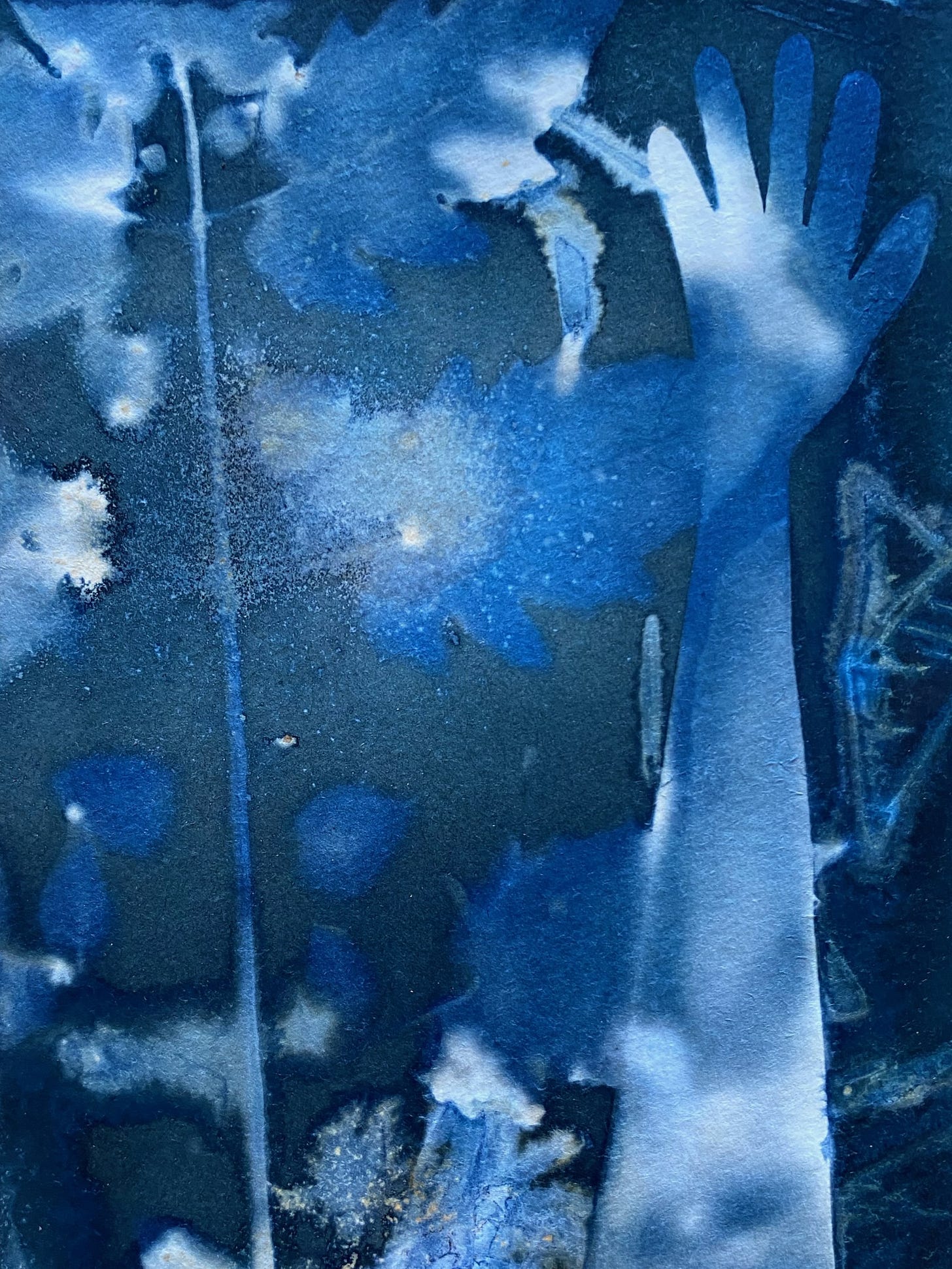On some days the rain reminds me of goodness. On other days each drop is a bid for the house on our street with the For Sale sign.
The house has stood empty ever since the trust of girls walked out of its doors to lay down on the tree trunks on Little Mountain. Trust became moss, so green we call it gold. We can only see it when the leaves have given up. We can only see it in the rain.
Opposite the For Sale house is an art exhibition and I walk in. Everyone has gathered around the canvas titled Instructions on becoming a goddess/god. The first step is curled parsley. The second step is butchering a chicken.
There’s a rebel group in Congo called the Mai Mai, which means, water water. Their witchcraft makes it so bullets that hit them fall off like water, or so they say. It’s hard to know, in a forest, what to believe. There’s so much rain. What kind of gods are we becoming?
I’ve never been able to butcher a chicken. I can’t help thinking about that moment where you become the bird. We’re eternal, the pastor said. We’re not immortal.
My bursting heart goes for a walk in the rain. Once, or so I was told, rebels were approaching our town and people took their talking drums fifty kilometres out of town and beat a message telling the rebels: go home. stay away.
A “talking drum” is a solitary log carved into two-tone lips: it is longer than your dining room table and beat with two sticks thicker than your arms. The tones sound out words and pass messages – fluid, nothing like the stutter-stop of Morse code.
They’re scrubbing moss off the walls in the For Sale house. In the forest, each tree trunk opens a mouth and waits for your strong arms.
A single talking drum is a heartbeat in the mist. Wood-throated, making your sternum shudder. I try to imagine the storm of hundreds,
sounding just long enough to snatch life from the branches. •
Trigger warning: mentions of violence.
Last week was Red Dress day in Canada; a day to raise awareness and remember missing and murdered Indigenous women and girls. In church, a former school teacher cried as she remembered Indigenous students of hers who simply disappeared. Six out of ten Indigenous women, our government says, experience physical and sexual abuse.
I work for a Canadian news organization and this week, I’ve been doing a deep dive into the archives. In December of 1989 writers were grieving horrible news: 14 young women were killed by a gunman on a university campus in Quebec, simply because they were women.
Violence against women is an old story, a global story. Recently, I realized that at least three of my friends have told me about surviving a kidnapping attempt: in rural Illinois, in downtown Chicago, and in small-town Uganda. Many more than three friends have been in deeply abusive relationships. These are just the stories in my own little circle.
This Substack is asks questions that expand what we see, that generate change. Usually they’re hopeful questions: blessings on a beginning or an ending or a middle. But today, my questions are around how we protect the trust of girls. What message do we send out into the world? Who sends it? What does it mean to crave immortality, to grab for power? What does it mean to be mortal?
I’ve written directly about violence once before:
If you’re new on this list and missed the last two weeks where I returned to Congo in lyric essay, you can catch up here:
Thank you for being here, thank you for reading, and thank you for the ways you speak up for the missing. <3









Such an important issue. Thanks for your attention to it.